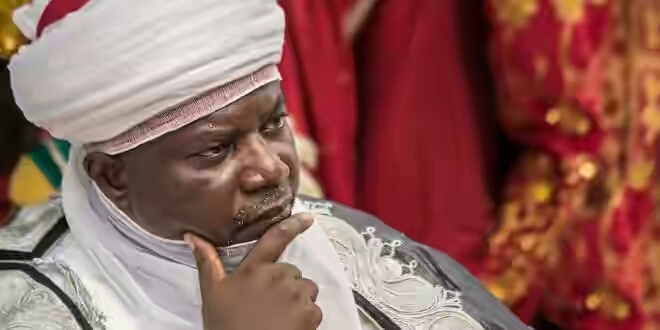
The Emir of Argungu in Kebbi state, Alhaji Samaila Mera, has said that Nigeria must pay greater attention to education than it pays to its mineral resources in order to develop as a nation.
He said this on Thursday while speaking at a press briefing jointly organised in Abuja by the Sultanate Foundation for Peace and Development, UNICEF, and the Universal Basic Education Commission, UBEC.
The monarch noted that the number of out-of-school children across the country has risen above 13.2 million in the last few years.
He attributed the surge to the increase in the number of internally displaced persons in several parts of the country.
Mera warned that the country would face deeper developmental problems in the future than it is experiencing now if efforts were not made by all to address the barriers to educational success of school-aged children.
Alhaji Mera identified socio-cultural and economic barriers as key challenges that must be addressed to increase school enrolment among children.
“For the nation to develop, it is education first and not the mineral resources that we have.
“The ability of most parents to provide school fees, books and uniforms for the children is low,” he said.
The monarch also lamented the dearth of quality teachers and critical infrastructure in remote villages where most of the out-of-school children are being raised.
He said: “Of course, there is the lack of proper teaching materials, teachers, and infrastructure also.
“Some parents end up deducing that the child may not learn anything but may end up wasting time. So, it would be best for he is out-of-school to engage on a trade that he could take up as a means of livelihood later in life.
“Most of the teachers we have were trained in big cities but a lot of schools are in remote areas without electricity and pipe-borne water supply. The kinds of accommodation available in these areas are below what anyone who has gone to school would want to live in. This has contributed to most schools in the villages having few or no teachers at all.”
He, therefore, called on the government to address these issues.
“I want to call upon our political leaders to look to the education sector with greater seriousness. Only strong actions in the sector can help us develop as a nation,” he said.
The monarch assured Nigerians that the traditional institutions in the country which, he observed, are currently led by individuals of high education would help address the unhealthy suspicions against western education prevalent in some communities in the Northern part of the country.
He urged parents and caregivers to contribute to national development by ensuring that every child was given the right access to education.
He said: “We, as traditional leaders, will advocate to our various state governors to address the issue of quality teachers. The prestige the teaching profession used to have in Northern Nigeria has completely eroded. The teacher needs to be provided with good accommodation.
“I am a product of Western education. I went to school in Nigeria and the UK but it hasn’t changed me same with most traditional leaders in the country.
“We, the traditional leaders, are role models that can talk to people about some of the sociocultural beliefs they may hold against education. We would use ourselves as evidence to address these negative suspicions.
“We can mobilise the people and create demand for education but the supply of services aspect has to march the demand for education.”
In his remarks, Geoffrey Njoku, UNICEF Nigeria’s Communication Specialist pointed out that low budgetary allocation to education was a bane to the sector at all levels.
He also said education statistics for states in Northern Nigeria were worse than those in other states due to negative attitudes towards formal schooling.
However, Njoku added that plans have been concluded to bring key traditional rulers, decision-makers, religious leaders and legislators together in a conference to brainstorm on the challenges and obstacles to getting children accessing education in Northern Nigeria
On the low budgetary allocation to education, he said: “A trend analysis of budgetary allocation for education at the national level shows that between 2010 and 2018, the highest education budget allocation received was in 2014, with 10 per cent total budget.
“In 2017 and 2018, education received less than eight per cent. At the state level, the situation is mixed. In 2017, some states budgeted as low as low as eight per cent, while others allocate as high as 33 per cent of the state budget on education. However, the actual release of funds tends to be lower than the amount budgeted.
On his part, a representative of UBEC headquarters, Bello Kadara stressed the need for traditional institutions in Northern Nigeria to support the mass sensitisation campaign at all levels to increase demand for access and quality learning.
